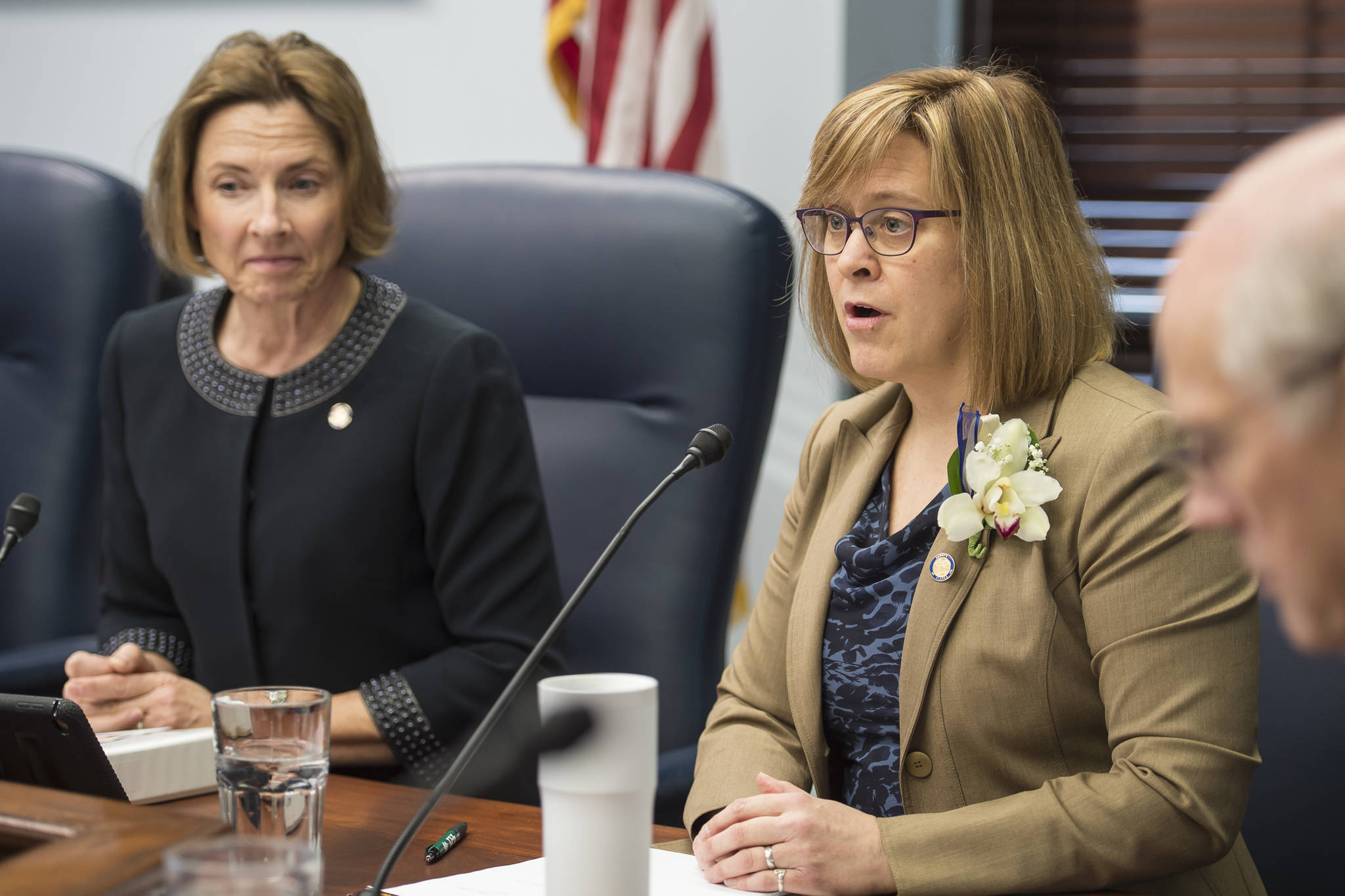With campaign promises in the rearview mirror and the 31st Alaska Legislature now in session, the real work begins for lawmakers who campaigned on addressing public safety in the state.
Senate President Cathy Giessel, R-Anchorage, said in a press conference Tuesday that reducing crime won’t happen overnight and it won’t take just one committee to do it.
“I’ve asked my committees not to operate in silos, and actually to collaborate,” Giessel said. “Many of these issues cross different committees and different subject matter.”
[Juneau’s new senator gets committee assignments, including ‘colossal’ task]
Giessel, who was elected as Senate President Tuesday morning, used the opioid crisis as an example of an issue that spreads beyond the Senate Judiciary Committee’s expertise. While that committee looks into crime issues, the Health and Social Services committee might be the one to work on solutions to the opioid crisis.
According to the Alaska Department of Public Safety’s Uniform Crime Report (UCR) released last year, the statewide total of Part I crimes — such as robbery, aggravated assault, burglary, theft and arson — rose by about 5.5 percent in 2017. Juneau Police Department statistics showed that the number of Part I crimes in the city and borough rose by about 5.7 percent from 2016 to 2017. Those increases weren’t as severe as the years leading up to 2017, but residents across the state have been vocal about their frustrations with crime.
[Residents express frustrations, stories of Juneau crime wave]
Many legislators are already chomping at the bit to make progress in reducing crime rates. In the 40 pre-filed bills in the House and Senate, more than a dozen of them are in reference to public safety.
One of the biggest focuses in the pre-filed bills is sexual violence. For example, House Bill 33, would require sex offenders and child kidnappers to register with the state. Senate Bill 12 would tighten up Alaska’s criminal code in cases of sexual assault. House Bill 20 would require law enforcement agencies to send sexual assault evaluation kits in for testing within six months. In recent years, Alaska has fallen way behind in testing these kits — which contain physical evidence of rape that can help lead to a conviction.
All of those bills have a long way to go to become law, but on the opening day of the session Tuesday, lawmakers spoke optimistically about their ability to pass legislation. One of the most contentious issues in recent sessions has been criminal justice reform bill Senate Bill 91, which instituted alternatives to long prison terms to reduce the number of incarcerated people in the state. The bill went into law two years ago, and last session, the Legislature rolled back some of the items in the bill. Many in the Capitol, including Gov. Mike Dunleavy, have expressed a desire to repeal the bill.
[Dunleavy vows to crack down on crime]
Senate Majority Leader Mia Costello, R-Anchorage, said in a press conference Tuesday that one committee will take on an increased importance in that attempt.
“We are committed to introducing legislation to address crime and finish the repeal effort so that Alaskans know that we are moving forward with a goal of safe, healthy and thriving communities as something that we prioritize,” Costello said. “We are all committed to that and that effort will be led by the Senate Judiciary Committee.”
• Contact Alex McCarthy at 523-2271 or amccarthy@juneauempire.com. Follow him on Twitter at @akmccarthy.


